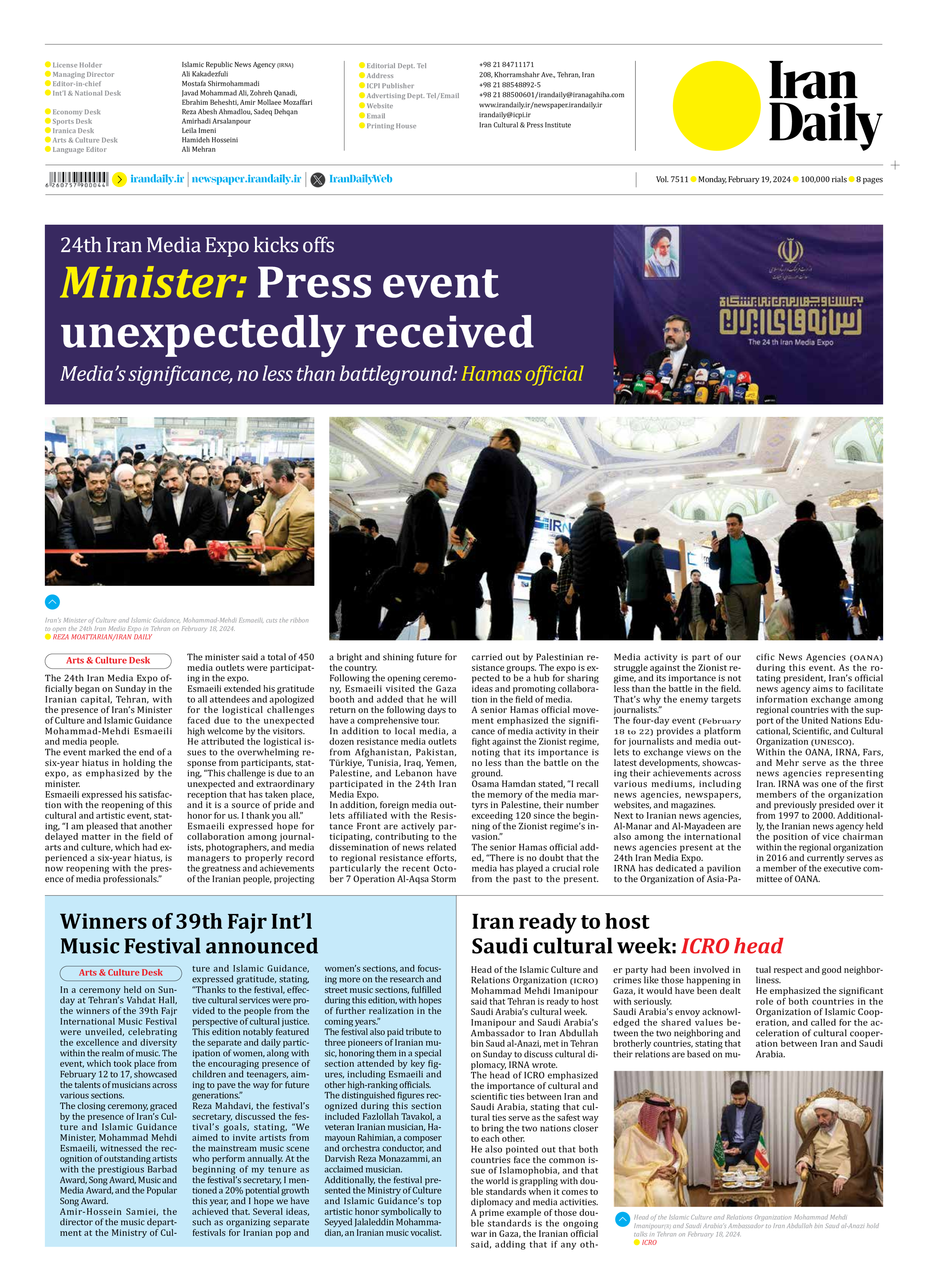
Winners of 39th Fajr Int’l Music Festival announced
In a ceremony held on Sunday at Tehran’s Vahdat Hall, the winners of the 39th Fajr International Music Festival were unveiled, celebrating the excellence and diversity within the realm of music. The event, which took place from February 12 to 17, showcased the talents of musicians across various sections.
The closing ceremony, graced by the presence of Iran’s Culture and Islamic Guidance Minister, Mohammad Mehdi Esmaeili, witnessed the recognition of outstanding artists with the prestigious Barbad Award, Song Award, Music and Media Award, and the Popular Song Award.
Amir-Hossein Samiei, the director of the music department at the Ministry of Culture and Islamic Guidance, expressed gratitude, stating, “Thanks to the festival, effective cultural services were provided to the people from the perspective of cultural justice. This edition notably featured the separate and daily participation of women, along with the encouraging presence of children and teenagers, aiming to pave the way for future generations.”
Reza Mahdavi, the festival’s secretary, discussed the festival’s goals, stating, “We aimed to invite artists from the mainstream music scene who perform annually. At the beginning of my tenure as the festival’s secretary, I mentioned a 20% potential growth this year, and I hope we have achieved that. Several ideas, such as organizing separate festivals for Iranian pop and women’s sections, and focusing more on the research and street music sections, fulfilled during this edition, with hopes of further realization in the coming years.”
The festival also paid tribute to three pioneers of Iranian music, honoring them in a special section attended by key figures, including Esmaeili and other high-ranking officials.
The distinguished figures recognized during this section included Fazlollah Tavakol, a veteran Iranian musician, Hamayoun Rahimian, a composer and orchestra conductor, and Darvish Reza Monazammi, an acclaimed musician.
Additionally, the festival presented the Ministry of Culture and Islamic Guidance’s top artistic honor symbolically to Seyyed Jalaleddin Mohammadian, an Iranian music vocalist.







